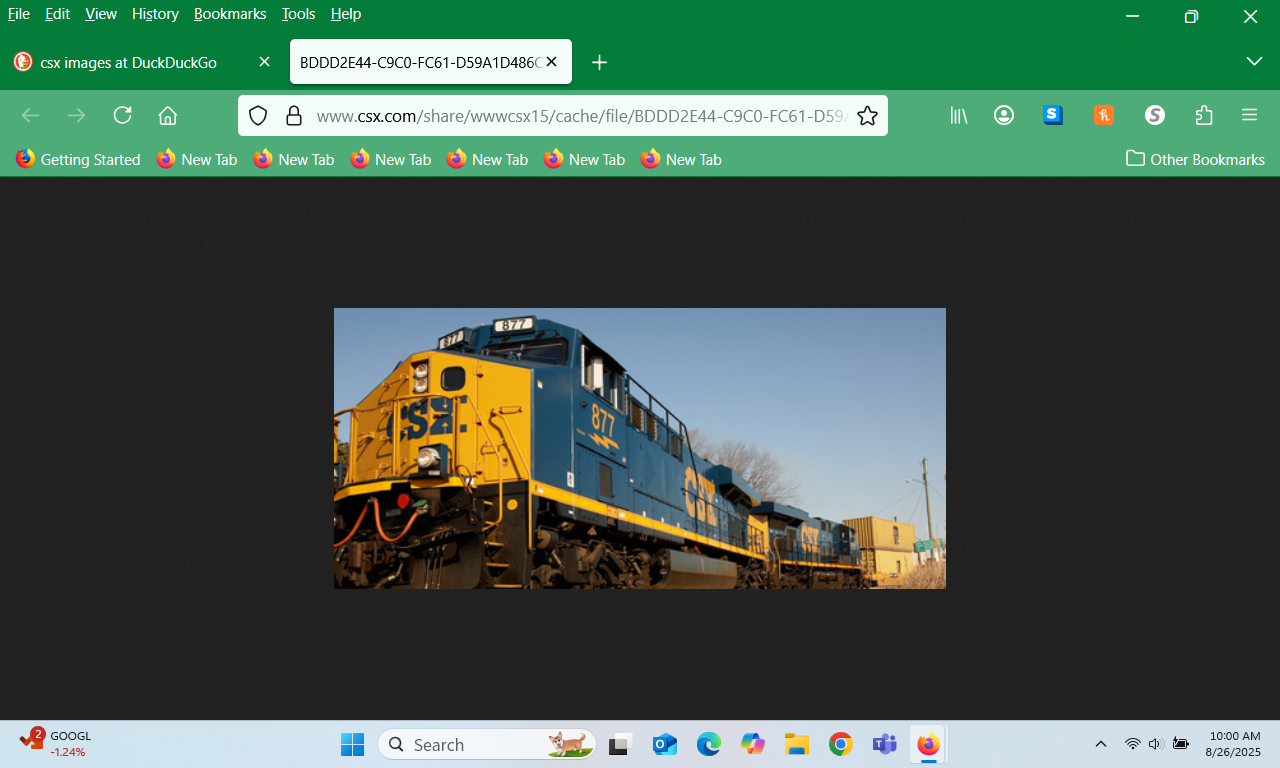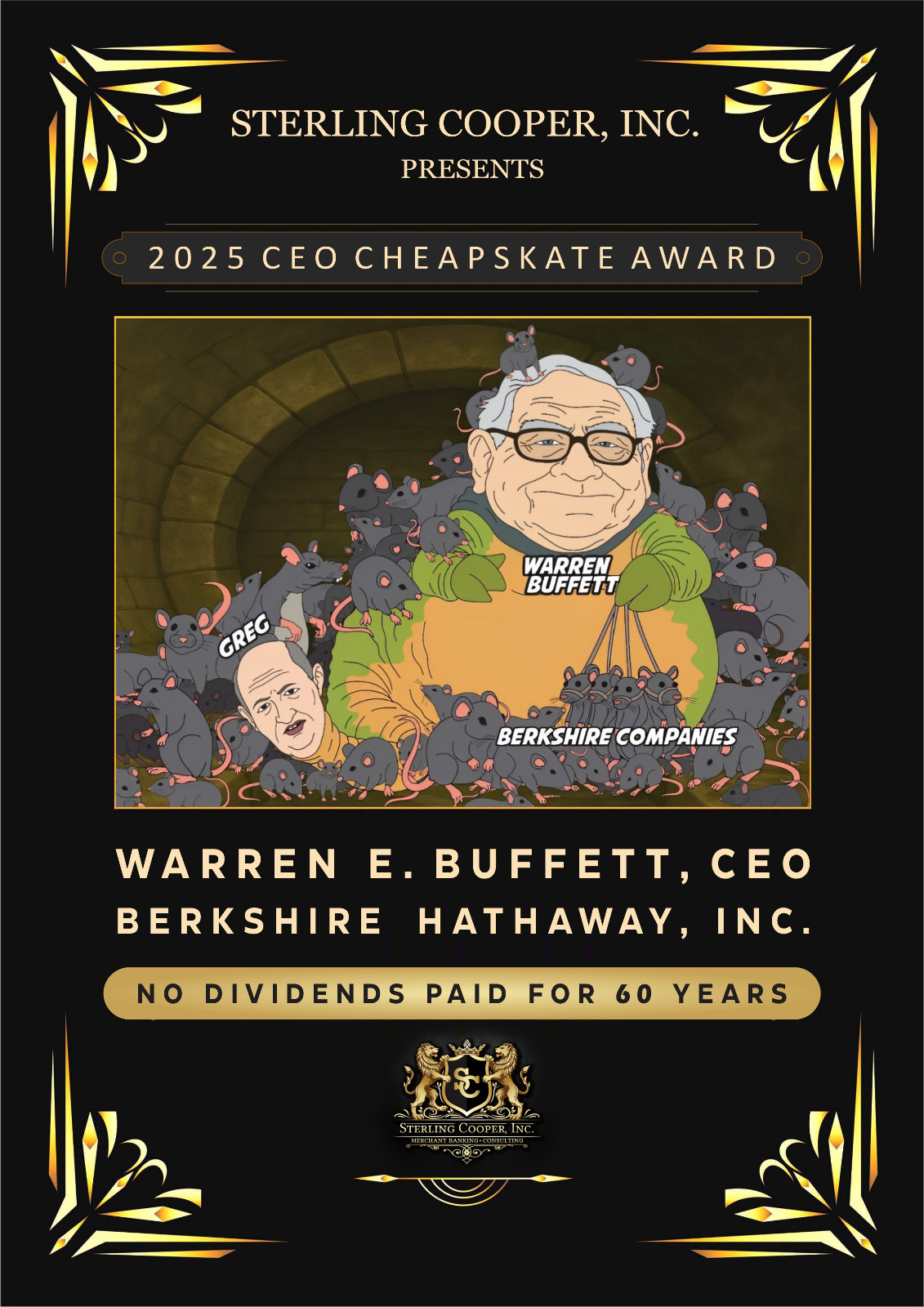CSX Stock Drops Because Buffett Isn’t Interested in Rail Merger. It Has Wider Consequences.

CSX stock fell 5.1% on Monday after a report that Warren Buffett’s railroad BNSF wasn’t interested in a merger. (Dreamstime)
Warren Buffett’s railroad, BNSF, might not be interested in creating a transcontinental railroad to compete with Union Pacific investors are disappointed.
ESPECIALLY THE INVESTORS IN BERKSHIRE HATHAWAY, INC., WHO HAVE BEEN WAITING FOR ADD-ON ACQUISITIONS USING THAT CASH HOARD TO BE DEPLOYED.
Warren Buffett,the 94-year old, known as the world’s biggest cheapskate apparently thought the price to acquire CSX may be too much…! His mini-me Greg Abel tagged along and apparently also agreed.

There is a saying…”stupid is …..”…that’s those two now…NO DIVIDENDS FORE 60 YEARS AND NOW BLOCKING A GREAT ADD-ON TO THEIR BNSF RAILROAD..
Shares of CSX dropped about $2 late Monday, leaving them down 5.1% at $32.81 on the day. Shares were down another 1.3% at $32.36 in early trading on Tuesday, while the S&P 500
The Monday move came after CNBC reported the conglomerate’s CEO, Buffett, and his heir apparent, Greg Abel, met with CSX CEO Joe Hinrichs on Aug. 3. “While they were open to partnership and greater cooperation between BNSF and CSX, they were not interested in making an offer for the company,” wrote Bernstein analyst David Vernon in a Monday report.
“The first question the news raises is whether we can live in a world with one transcontinental railroad, if even for a little while,” added Vernon. Railroad regulators might not want “imbalanced competition,” and the market would prefer two transactions instead of just the Union Pacific-Norfolk tie-up.
“The second question this raises is why Berkshire is not interested in a deal. If the merger benefits are so great, why not pursue a deal?” added Vernon. He suspects Berkshire might balk at paying a big premium to CSX shareholders for synergies that aren’t sure to materialize.
Still, the lack of a buyer for CSX could throw a wrench into the potential for large railroad mergers—something that hasn’t happened in a generation. If regulators don’t see adequate competition, they might not allow the Union Pacific-Norfolk Southern deal to proceed.
Canadian rail deals could be a solution if either Canadian Pacific Kansas City or Canadian National Railway were interested. A Canadian-U.S. deal would face heightened regulatory scrutiny north of the border, said Gordon Haskett analyst Don Bilson.
The simplest solution for the industry would be two highly competitive transcontinental railroads. That would require BNSF to act, however.
“With Buffett now on the record, CSX investors can now safely assume that nothing is going to happen between CSX and BNSF anytime soon, if at all,” Bilson said in a Tuesday report. “We would note that Buffett will be retiring in December, though we doubt Greg Abel is a threat to call an audible until he has seen what comes of the partnership that was just announced.”
BNSF and CSX recently announced an agreement to collaborate on intermodal service, the use of both trains and trucks to take goods to their final destinations.
“With a BNSF bid for CSX now (seemingly) squashed, the base case now shifts to deeper CSX-BNSF commercial alignment,” wrote Raymond James analyst Patrick Tyler Brown on Tuesday. “The wildcard remaining [is] whether BNSF (and/or CSX) formally opposes a Union Pacific-Norfolk Southern deal, which would further dampen deal odds.”
Failing to find a merger partner and regulators letting Union Pacific and Norfolk Southern merge could result in CSX being less competitive, said Ancora portfolio manager Jim Chadwick. Ancora has a stake in CSX and believes the company should pursue a combination aggressively.
That, however, requires some willingness from another party.
At Monday’s close, CSX stock was just below its level in mid July, before news broke
that Union Pacific was looking to find a merger partner.
